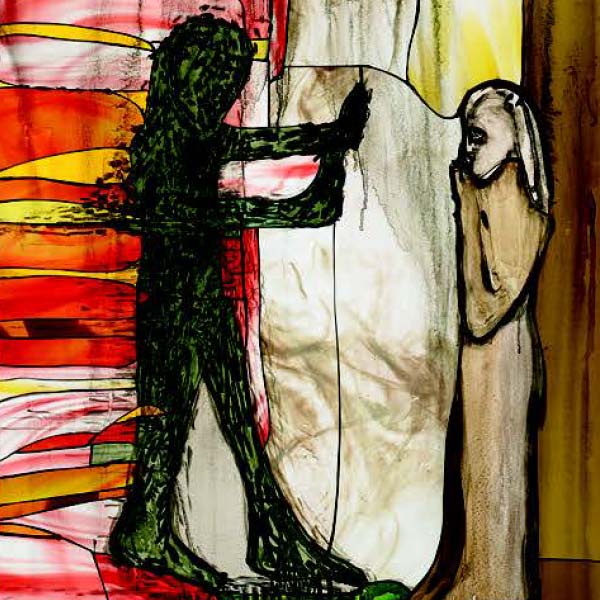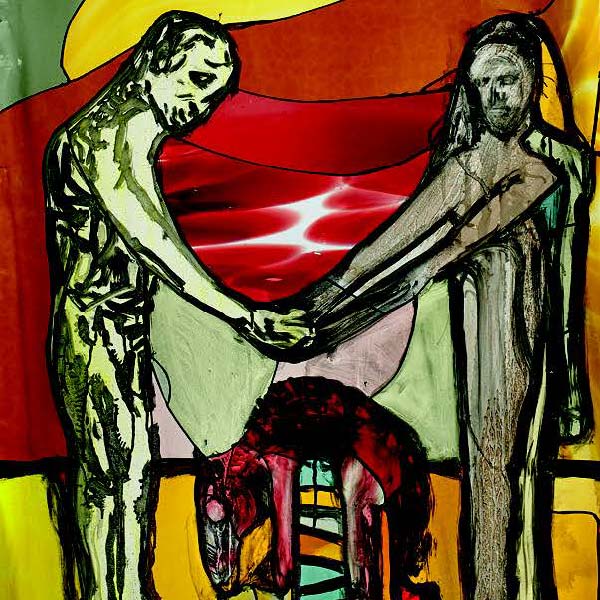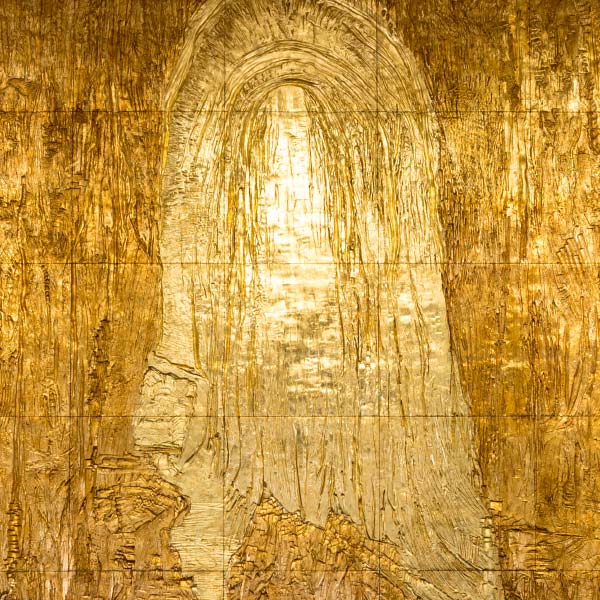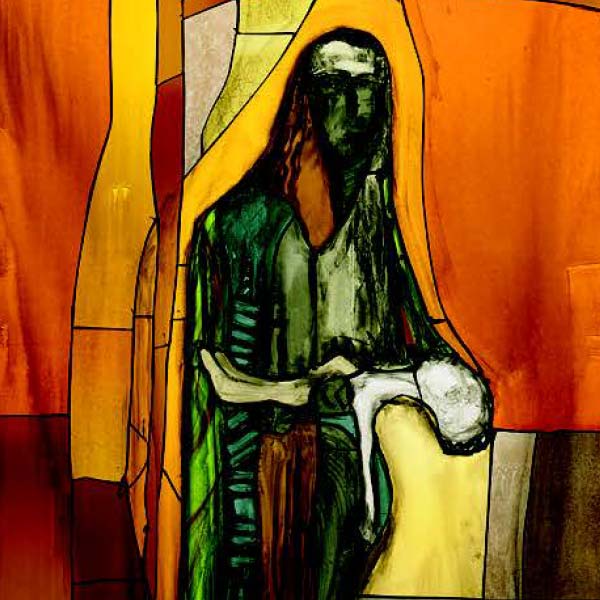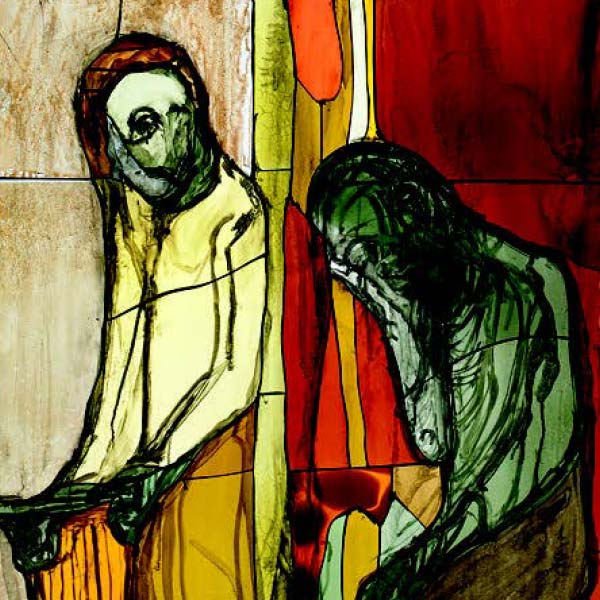Section 2
Western Wing
The stage area of the chapel features the relief wall, as well as stained-glass panes depicting stories about the resurrected Christ appearing to Mary Magdalene; Abraham and Isaac; Elijah and the widow and her son; and David playing the harp for King Saul.
The Resurrected Christ Encounters Mary Magdalene
The top pane to the right of the relief wall depicts Christ emerging from the tomb Easter morning, as he encounters Mary Magdalene (John 20:13-17). He stands on a step, floating for a brief moment amid a swath of golden and red rays of light, almost like umbilical strings along his path to rebirth. The light rays are both visible and invisible, like the light streaming through a stained-glass window. You cannot touch the light as you can touch water. Mary Magdalene cannot touch it either. With his raised hands, Christ tells her that she must not touch him yet. Before the awed, astonished Mary Magdalene, Christ becomes a body — yet he is still, like scattered points, rather than body and light.
Abraham and Isaac
The bottom pane depicts the Old Testament story of Abraham sacrificing his son Isaac (Genesis 22:9-13). Brandes examined the story of Abraham and Isaac, addressing the paradox of someone who struggled so much to have a child being so willing to sacrifice that very child to obey God’s command. With that in mind, Brandes shows the pair “making peace” with the path forward, hand in hand — and placed between them, what was ultimately the sacrificial ram given in place of Isaac’s sacrifice. As with all the windows in this front section, this one illustrates resurrection and new life.
Relief Wall
This 31-by-18-foot gold relief sculpture depicts the resurrected Christ emerging from the tomb, radiant with glory. The sculpture was hand-carved from clay, cast in plaster and gilded with different karats of gold — with the purest, 24-karat gold shining in the middle, designed to draw you into the space with light and color.
Elijah Raises the Widow’s Son
The top two panes to the left of the relief wall depict Elijah’s interactions with a widow and her son (1 Kings 17:17-24). Elijah arrives at the home of the hungry widow and her son. Though famished herself, the widow offers the last meal they have left — but after they have eaten, the widow realizes a miracle has occurred and there is both bread and water left. That night, however, the widow’s son dies. It is at this time that the first resurrection in the Old Testament occurs — Elijah asks God to give the child his life back, and he is raised from the dead. This window has been placed deliberately opposite the window with the Easter morning motif, and in the part of the chapel bearing Maja Lisa Engelhardt’s massive wall with the motif of resurrection.
David Plays the Harp for King Saul
The bottom portion of the left hand pane illustrates the story of David playing the harp for King Saul (1 Samuel 16:21-23). Saul knows that David, the chosen one, will succeed him on the throne. He is said to suffer from headaches, and music soothes his pain. David plays his harp for Saul countless times, bringing him relief and joy. When he hears the music, the mighty Saul is moved to tears, and he does not want to expose himself to the young David. A cloth or curtain separates the two, so that Saul can sit alone, unseen, with his feelings and thoughts.
 Biola University
Biola University